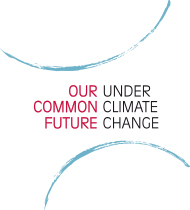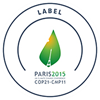The Technico Economy Institute of the Energy Systems (I-t�s�) has for mission to realize technico-economic studies and to provide multicriteria analyses and foresights of technologies and/or energy systems for CEA (French Alternative Energies and Atomic Energy Commission). Its main research themes cover new energy technologies and their impacts in terms of greenhouse gas emission. Its expertise in economy, methodologies and �tech-eco� data contribute to the choices of the CEA R&D; programs. This expertise is shared and enhanced with other CEA units, partnerships and collaboration with peers. Most of the projects are financed via research programs, in part by agencies such as ANR or ADEME (French agencies for energy research), or the industry (in particular EDF and AREVA).
Since 2008, an event dedicated to a theme related to energy is organized by I-t�s�. This event aims to present the current and future works. It involves a large spectrum of speakers highlighting the links between I-t�s� and (i) the different decision-makers within CEA, (ii) industry experts (EDF, AREVA, ENGIE, AIR LIQUIDE, RENAULT�), (iii) national authorities (Ministries, governmental Committees, Commissions), (iv) international organizations such as IAEA, CME, OECD, European Commission, etc., and (v) academia, including the new university cluster �Plateau de Saclay�.
This year, the topic of the conference is: "Which role for hydrogen in the energy transition?".
The interest for hydrogen, as an energy vector facilitating the low carbon pathway of our energy system (mainly by storing electricity coming from the renewables or the nuclear power) is not new. Important projects were for instance on track in the 1980s: the main idea was to take advantage of low cost nuclear power (off-peak hours) to produce hydrogen.
Some technologies are already developed: for the production, storage and use of hydrogen. These innovative approaches are related to the role of hydrogen in the management and the monitoring of the electrical network, in particular with the development of variables sources such as wind and solar. In the last years, an additional topic related to hydrogen came up: its utilization in transport.
Recently, two important French reports questioning the hydrogen potential were published: one made by the Parliamentary Office of Evaluation of the Scientific and Technical Choices in 2013 (�Hydrogen: vector of the energy transition?�), the other published by France Strategy in 2014 (�Is there a place for hydrogen in the energy transition?�). One answer can also be found in the 2014 National Alliance of Coordination of Research for Energy (ANCRE) scenarios, where the hydrogen vector has a significant role to play in several scenarios to target the 2�C by 2050.



